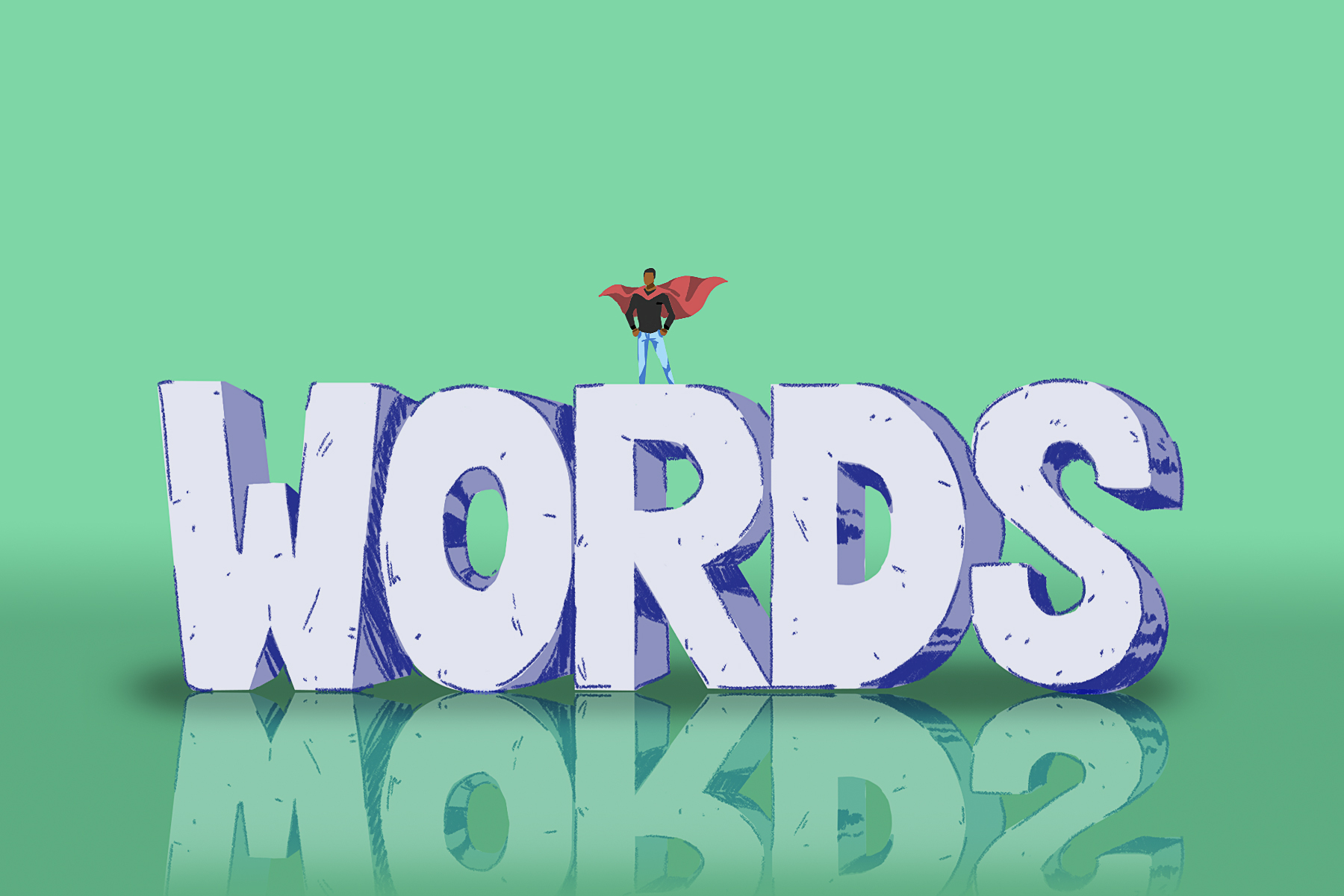Amanda Montell’s 2019 book, “Wordslut: A Feminist Guide to Taking Back the English Language,” approaches sociolinguistics — the intersection of the studies of language and sociology — in an accessible and humorous way that’ll leave you both informed and laughing. Montell’s lighthearted writing style mixes scholastic studies and examples with personal anecdotes that make her work digestible and enjoyable to read. She provides the history of gendered language and its evolution, and breaks down the ways words are used to disempower any gender that isn’t “man.” The book offers a solution: We can be more proactive in how we use English, as language is the lens through which we perceive the world. That change begins at the individual level.
Even prior to reading “Wordslut,” my personal interest in the feminist perspective had developed over time, beginning before I even had the language to understand it. I am the youngest child in my family, and I have two older brothers who I adore. My brothers have been a constant source of motivation for me my whole life, and while my parents did a great job in raising us equally, that experience wasn’t always the same outside of our household. I attended a Catholic school where I soon became aware of gender differences.
“Why can’t girls altar serve during Benediction?” “Tradition.” Tradition seemed like a lousy excuse to me. Why can I altar serve during regular mass then? And let’s be honest here: I can carry the cross better than those eighth grade boys any day. Oh well, I guess I’ll serve every other mass, vigil, funeral or wedding then.
Something that I’m still quite proud of myself for is my selection of Joan of Arc as my confirmation name. If I was going to be an adult in the Church, an expectation that I was quite unsure of at the time, I was at least going to be named after a “badass.” I was attracted to her fearless leadership during the Hundred Years’ War as well as her bold gender transgressions. Here was a woman who wasn’t that much older than myself at the time leading a French army of men to victory in Orleans. Talk about bucking gender roles — and all the way back in the 1400s, too! As the story goes, Joan of Arc was indeed quite the badass, and I think that she’d enjoy reading “Wordslut,” too. I didn’t know it yet, but I was a feminist; simply, I believed, and still believe, in the equality of all genders.
My admiration for language came even earlier. I always loved words, loved to read, did better linguistically than I did numerically. While I sat undecided for a while, I grew up to become a writer. Perhaps that shouldn’t have been so much of a surprise after all. In my freshman year of college, the worlds of gender and language collided in my gender communication class. We discussed the importance of language in culture and the ways in which it both defines and shapes realities.
In another class, my English professor constantly repeated the phrase, “esse est percipi,” George Berkeley’s philosophy meaning, “to be is to be perceived” or “to be perceived is to exist.” She repeated the phrase every day so I wrote it down, figuring it might be important. I think “esse est percipi” is a way to understand the role of language.
Language is the lens through which we see the world; it’s how we communicate our thoughts and feelings to others. It’s a social tool through which we establish authority and form solidarity. By having the words to explain or describe a concept, we’re able to bring it outside ourselves so that other people can perceive it as well. The perceptions of others tend to ratify our ideas; it legitimizes our experiences.
Take our love of labels, for example. Presently, people are much freer to express their unique gender identities and sexualities than they once were. Our vocabulary is constantly growing and evolving to describe the nuances in identities along the spectrum, not because these identities did not exist before now, but simply because we didn’t have the words to describe them.
As the world becomes more accepting, people are able to share their identities and coin these new terms. And it’s amazing. Sexualities and gender identities that aren’t the assumed heterosexuality and cisgender are able to be perceived through their names, bringing the concepts into existence for many who may not otherwise understand those who are different from them.
Or consider my experience. I didn’t know it during my Catholic elementary school days, but now I can identify myself as a feminist. I have the language to define my beliefs and explain them to others through the use of one word.
That’s not to say that labels work for everyone. Because while language is great at defining, it can also be confining for people who simply don’t need or want to be put into a box. They are who they are and it’s not necessary to equate a word to what they feel, and that’s equally valid.
Either way, we can gather two certainties that Montell explains in “Wordslut”: Firstly, language holds an incredible amount of power, and secondly, we give it that power. Because we can control it, we can change that language. Just as our glossary of words for the spectrum of sexuality is growing, all language is constantly evolving.
Montell describes the processes of pejoration — when a word initially has a positive or neutral definition that devolves into a negative one — and amelioration — the inverse development. In fact, the word “slut” pejorated; it came from the Middle English word “slutte,” which meant an “untidy” woman. The definition shifted to mean a woman who is “sexually promiscuous.”
So in a language colonized by “sluts” versus “mansluts” — which makes the default term female — and exclusionary generics that assume maleness or heterosexuality or whatever normative identity, how can we seek to undo what has become so routine? We must not forget the malleability of language. It has power, yes, but its users are who harness this power over it.
Montell explains the ability to control and change language as such: “That means questioning the words we speak every day, as well as the contexts in which we use them — because without realizing it, something as simple as an address term or curse word might be reinforcing a power structure that we ultimately don’t agree with.”
If our language establishes authority, we can begin to challenge inequitable power structures linguistically. So my advice is this: Become a “wordslut.” Who knows — we may even change the world.


















It’s a refreshing, empowering reminder that language isn’t fixed—by reframing the words we use, we can subtly reshape societal norms, starting on a personal level. Happy Wheels